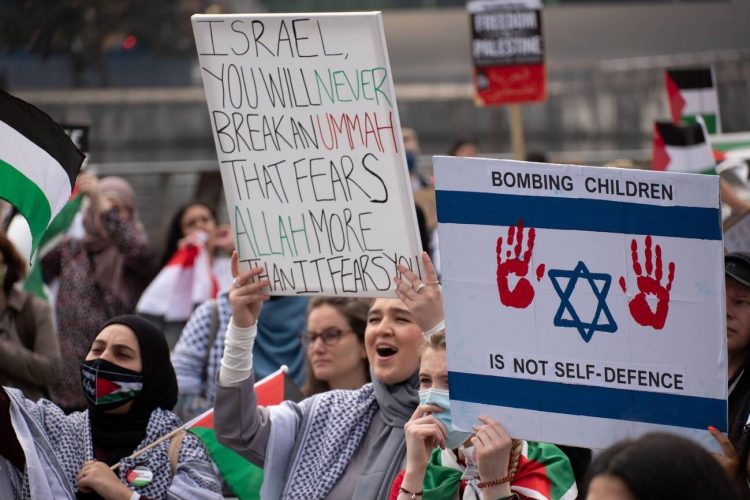Israel’s foundation rests upon religious-ethnic principles. Political ideology and action in Israel derive from a belief in racial supremacy. This dynamic manifests itself within both overt and covert discourse frameworks. Conversely, media wield significant influence as potent vehicles for disseminating information and shaping audience perspectives. Israel leverages mass media to propagate its political agenda and promote ethnic and racial superiority. This article provides a brief examination of the role of the media in Israel’s establishment.
Media and their role in representing political realities
Each event becomes significant only if the news reports influence political actions, although measuring this influence’s extent accurately is impossible. Despite this, some have estimated that the media significantly and precisely influences political and policy-making issues. Most humanitarian aid and its approval in legislative assemblies is done with the support of the press. The media is effective by creating a political atmosphere and persuading society and legislators to approve humanitarian aid.
Role of media in Israel’s establishment
The Israeli media is constantly trying to reproduce the hidden discourse behind Israel’s political ideology. Israel’s elites, in the process of positive and negative identification for citizens, draw its borders with the use of media. Therefore, the role of media in Israel’s establishment has been very high.
Pro-Israel media coverage
The battle between Jews and Palestinians is the conflict of the oldest and newest divine religions. This battle is rooted in the hereditary claims of the Palestinian and Israeli sides over the ownership of the land. When the state of Israel was established, media coverage of the incident was mostly supportive. Also, the media coverage of the 1967 war between Israel and three Arab countries was accompanied by unilateral support. The role of media in Israel’s establishment was completely one-sided and in favour of the Israelis. Most of the television coverage focused on the Israeli front. However, there were subtle and sometimes critical differences in the British press.
The fruitless attempt of the media to maintain neutrality
The 1973 war was initially associated with defeats for Israel. The country was later able to force the Arab armies to retreat. This war brought a bit of neutrality into the work of the Western media. Although these media still mainly supported the Israeli side. However, they were able to raise questions about the tactics and conditions of both sides. It was in the 1970s that a series of circumstances caused media coverage to change. Both sides of the conflict tried to compete in media neutrality and attract media attention.
The media’s negative view of Jewish settlements
According to international law, the construction of Jewish settlements in the occupied territories is an illegal act. Still, Israel has a different interpretation of these rights, which does not include the Palestinians. As the number of Jewish settlements increases, the negative view of Western journalists about this country increases. In particular, America has criticized Israel’s settlements, especially during the presidency of Barack Obama. On the other hand, the liberal news media consider Benjamin Netanyahu’s prime minister to be warlike and non-peaceful.
The positions of the media towards Israel
In recent years, the coverage of news about Israel in the Western world has been contradictory. The right-wing press usually supports Israel. The left media have an opposing or pessimistic stance towards this country. In conflicts such as this year’s war in Gaza, news networks, with their desire to create excitement, have shown the impact of Israeli attacks, especially on children.
The role of the media in not representing Israel’s anti-human rights actions
One of the most crucial issues surrounding the recent war in Gaza is the issue of human rights. International human rights organizations have recorded many reports of Israel’s actions in violating the rights of the Palestinian people. These measures are brutal, inhuman, humiliating, torture, displacement, and homelessness. Still, one of the reasons for not paying attention to the fundamental rights of Palestinians is the lack of real media representation.
Israelis’ fear of media coverage of anti-human rights actions
A clear example of the media’s role in making the public aware of Israel’s crimes was during the 2008 war. Public attention to the plight of Palestinian children intensified when the media reported on the targeting of schools. Realizing the impact of global news on human rights violations, Israel tried to prevent journalists from entering these areas. In the invasion of 2008, Israel stopped the entry of many journalists. But the reports in this field managed to create a chain of media, Palestinians and television viewers.
Israel’s anti-human rights actions in Gaza
Israel has a long history of human rights abuses. The reports of human rights organizations in these years include cases of human rights violations by Israel. Demolition of people’s houses, construction of walls and settlements, and separation of children from their families are violations of human rights. They are targeted at heavy artillery bombardment and air-to-ground missile attacks that destroy or damage schools and hospitals.
Human rights performance of Western media
It appears that the variance in perspectives on human rights has extended to the media landscape. The media has not taken a rightful position in this regard and has been distorted. This aims to change the place of concepts in the audience’s mind and replace them with examples and distorted concepts. The definition of people from the point of view of the media in their own country is people aligned with the government. But in other countries, if people stand up against their government, they are subject to human rights. In the recent Israeli atrocities in Gaza, the Western media showed the same double standards regarding human rights.
The media failed to cover the real violations of human rights by Israel
The role of media in Israel’s establishment was vital, and it is still the media that has supported Israel. However, in recent years, the media has also been critical of Israel’s actions. Media plays a crucial role in covering actions against human rights. As a result, they create the obligation to comply with human rights standards. They also have the power to present different representations of anti-human rights actions in international documents. This was evident in the recent Gaza war by the mainstream Western media.





























